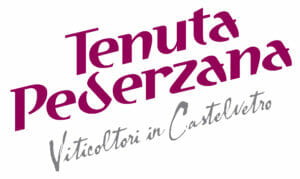
Following WWII, Franco Simonini and his wife Margherita collaborated closely with the University of Bologna in a bid to identify the best clones of the noble variety prevalent in the area, Grasparossa di Castelvetro. After much experimentation, he succeeded in isolating a clone of Grasparossa which, years later, his nephew Francesco Gibellini – who now runs the company with his uncle Massimo – discovered to be unique among the range of clones registered with the Experimental Institute for Viticulture. Growing from an estate with only 2.5 acres to the 35 acres estate it is today, Pederzana remains focused on preserving its ancient strain of Grasparossa grafted onto Golia rootstock in Guyot-trained vineyards. The vineyards have the ideal conditions for cultivating Grasparossa with rich aromas and excellent polyphenol levels.
The terroir and microclimate of Pederzana are singular. Sunlight bathes the estate in the valley of Solignano Vecchio from the early morning onwards and it benefits from very cool air currents that create the ideal temperature fluctuation between day and night for the successful ripening of Grasparossa’s aromas and polyphenols. The clayey soil allows the vines to cope well even for quite long periods without any rain, and the constant ventilation means that the vegetation always remains dry. The vineyards are divided into two main zones: One just below the winery with south-easterly exposure and the other facing due east. This results in different ripening times and the development of varied characteristics within the Grasparossa that, ultimately, result in a richer blend for the final wines. Harvesting at Pederzana takes place entirely by hand in order to carefully select the ripest and healthiest parcels of grapes.